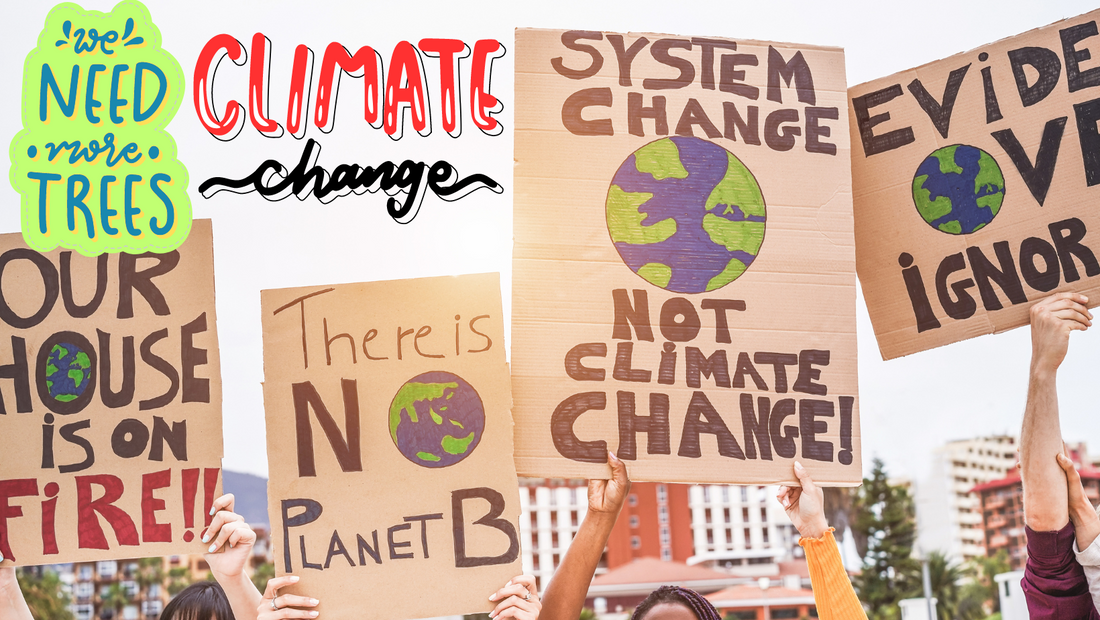
Climate Change: A Global Threat to Our Planet
Share
Climate change is one of the most significant environmental and social challenges of our time. It is caused by the increasing concentration of greenhouse gases (GHGs) in the atmosphere, primarily due to human activities such as burning fossil fuels, deforestation, and industrial processes.
Climate Change: A Global Threat to Our Planet
The consequences of climate change are far-reaching and include rising sea levels, more frequent and severe weather events, and threats to food security, human health, and biodiversity.
The scientific consensus is clear that climate change is real, and it is happening now. The Intergovernmental Panel on Climate Change (IPCC) reports that the Earth's temperature has already risen by 1.1°C above pre-industrial levels and is projected to increase by 1.5°C within the next two decades, and by as much as 4.5°C by the end of the century if no action is taken to reduce GHG emissions.
Impact of Climate Change
The impacts of climate change are already being felt around the world. Glaciers are melting, causing sea levels to rise, and coastal cities and island nations are at risk of flooding and submersion. Extreme weather events, such as hurricanes, droughts, and heatwaves, are becoming more frequent and severe, leading to loss of life, property damage, and economic disruption. The effects on agriculture and food security are also significant, with changing rainfall patterns and more frequent extreme weather events leading to reduced crop yields and higher food prices.
The effects of climate change are not evenly distributed. Developing countries and vulnerable populations, such as indigenous communities and those living in low-lying areas, are disproportionately affected. These communities often lack the resources and infrastructure to adapt to the changing climate, making them more vulnerable to its impacts.
Response to climate change requires a collective effort
The response to climate change requires a collective effort from all countries, governments, businesses, and individuals. The Paris Agreement, signed in 2015 by nearly all countries, sets a goal of limiting global warming to well below 2°C above pre-industrial levels and pursuing efforts to limit the increase to 1.5°C. To achieve this goal, countries must commit to reducing their GHG emissions and transitioning to a low-carbon economy.
The transition to a low-carbon economy requires a shift away from fossil fuels and towards renewable energy sources, such as wind, solar, and hydropower. This transition presents a significant economic opportunity, with the potential to create millions of new jobs and stimulate economic growth. However, it also requires significant investment and policy support to overcome barriers to adoption, such as the high upfront costs of renewable energy technologies.
Individuals roles in addressing climate change
Individuals can also play a role in addressing climate change. Simple actions such as reducing energy consumption, driving less, eating less meat, and using public transportation can all contribute to reducing GHG emissions. Engaging in advocacy and supporting climate-friendly policies can also help to drive change at the local, national, and international levels. Individuals can also plant trees as possible for the future generations.
Conclusion
In conclusion, climate change is a global threat that requires urgent action. The science is clear that we must reduce our GHG emissions to limit global warming and avoid the most catastrophic impacts of climate change. The transition to a low-carbon economy presents both challenges and opportunities, and it requires a collective effort from all sectors of society to achieve. We must act now to address climate change and ensure a sustainable future for our planet and future generations.
Gift One, Plant One Campaign
The Akalmand Gift Store philosophy is on "Gift one, plant one" or "Buy one, plant one" Campaign where We pledge plant trees with every product you buy.
By supporting this campaign and choosing our products, individuals can directly Plant more Trees in their happy moments like Birthday, Anniversary, Work Anniversary, Farewell, Reward & Recognition, Promotion, Celebration, Achievements and many other auspicious moments.
In conclusion, the number of trees a person is liable to plant on earth during their lifetime varies based on individual circumstances. However, everyone can contribute to planting more trees in one way or another, and every tree planted counts towards the global effort to combat climate change and preserve the environment.
Plant Trees, Save Environment, Create Healthy future for your Kids.
Dear Akalmands! Please support Gift One Plant One campaign by The Akalmand Gift.









